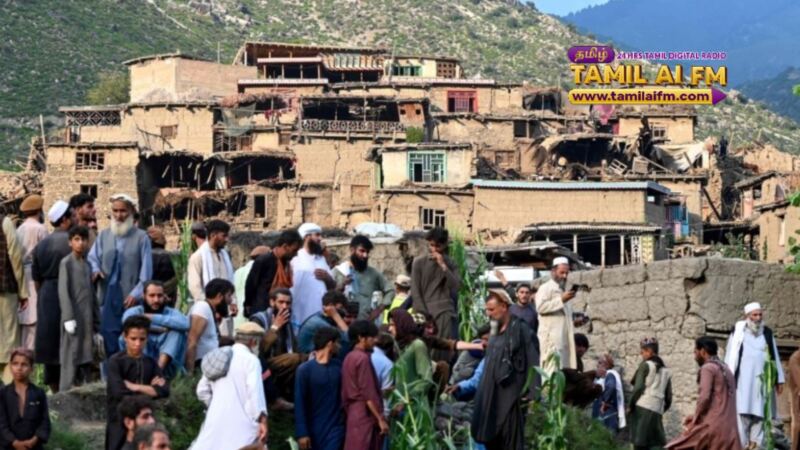NURGAL (Afghanistan) —The death toll from the powerful earthquake that struck eastern Afghanistan at the weekend rose sharply Thursday to more than 2,200, according to updated figures, making it the deadliest in decades to hit the country.
The vast majority of those killed in the magnitude-6.0 earthquake that jolted the mountainous region bordering Pakistan late Sunday were in Kunar province, where 2,205 people died and 3,640 were injured, with a dozen deaths and hundreds of injuries in neighbouring provinces Nangarhar and Laghman.
Access to the hardest hit areas was stymied by already poor roads blocked by landslides and rockfall that continued as the area was convulsed by strong aftershocks.
On Thursday night, a shallow 5.6-magnitude earthquake hit near the epicentre of Sunday’s temblor near Jalalabad city in Nangarhar, shaking buildings as far away as Kabul and the Pakistani capital Islamabad.
It was the seventh strong aftershock recorded by the US Geological Survey, plunging survivors repeatedly into fear.
“A rolling wave of aftershocks in eastern Afghanistan is terrifying children who have lost families and homes in the country’s deadliest earthquake in nearly 30 years,” said non-governmental organisation Save the Children.
In the past 24 hours, the death toll rose by more than 700, according to the Taliban authorities, and the figure could continue to rise as rescuers search for bodies in the rubble.
“Hundreds of bodies have been recovered from destroyed houses during search and rescue operations,” deputy government spokesman Hamdullah Fitrat said, adding that “rescue efforts are still ongoing”.
The earthquake destroyed more than 6,700 homes in Kunar province alone, where survivors were living under the elements, barely any aid having reached them.
“We urgently need tents, water, food and medicine,” Zahir Khan Safi, 48, told AFP from the corn field where his family and hundreds of others were squeezing under meagre pieces of tarp pulled from the rubble and unsure of where they would get a morsel to eat.
“Yesterday, some people brought some food, everyone flooded on them, people are starving, we haven’t had anything to eat for a long time,” he said. “There was a fight over food.”
Various countries have flown in aid, and on Thursday China pledged around $7 million of emergency relief, such as tents, blankets and food.


